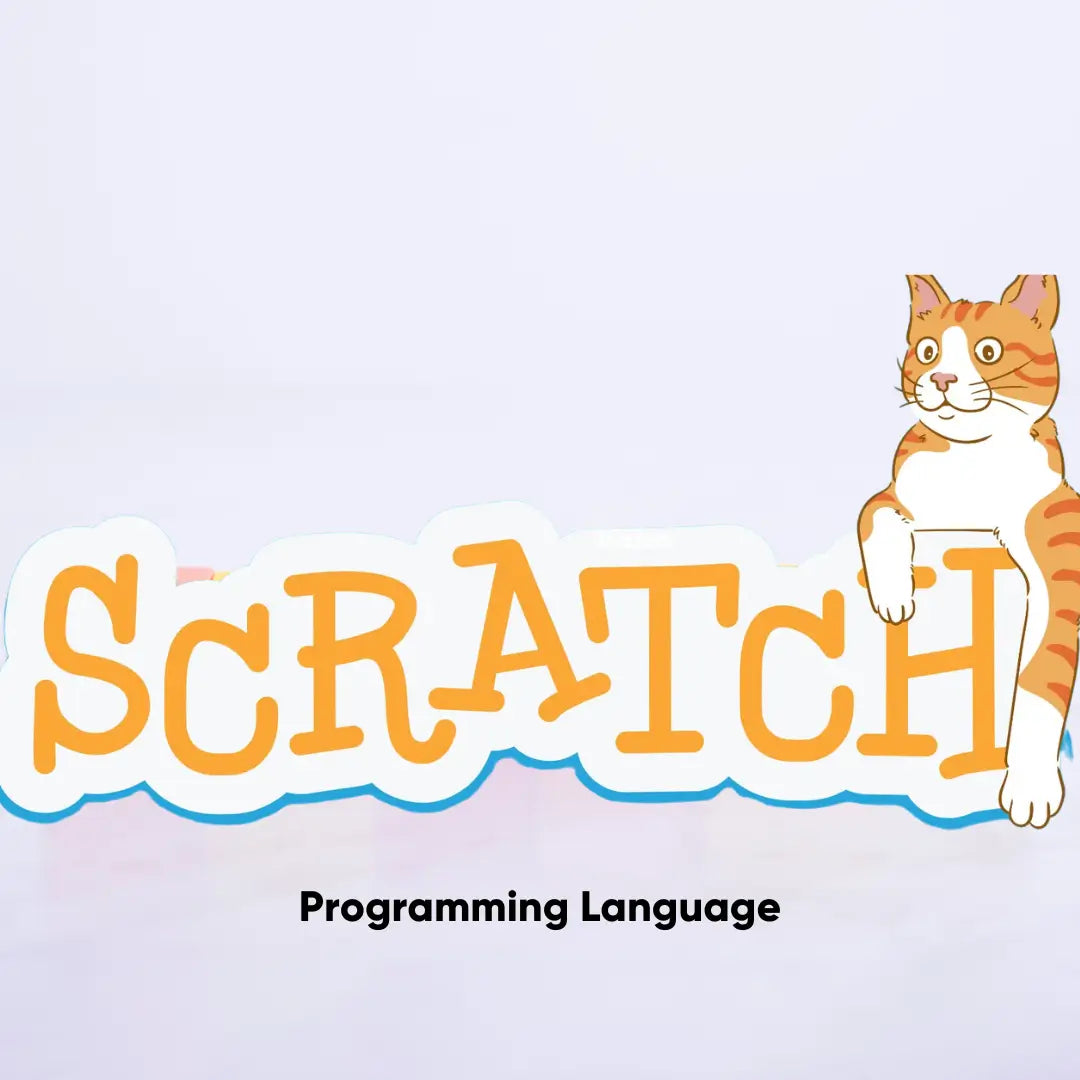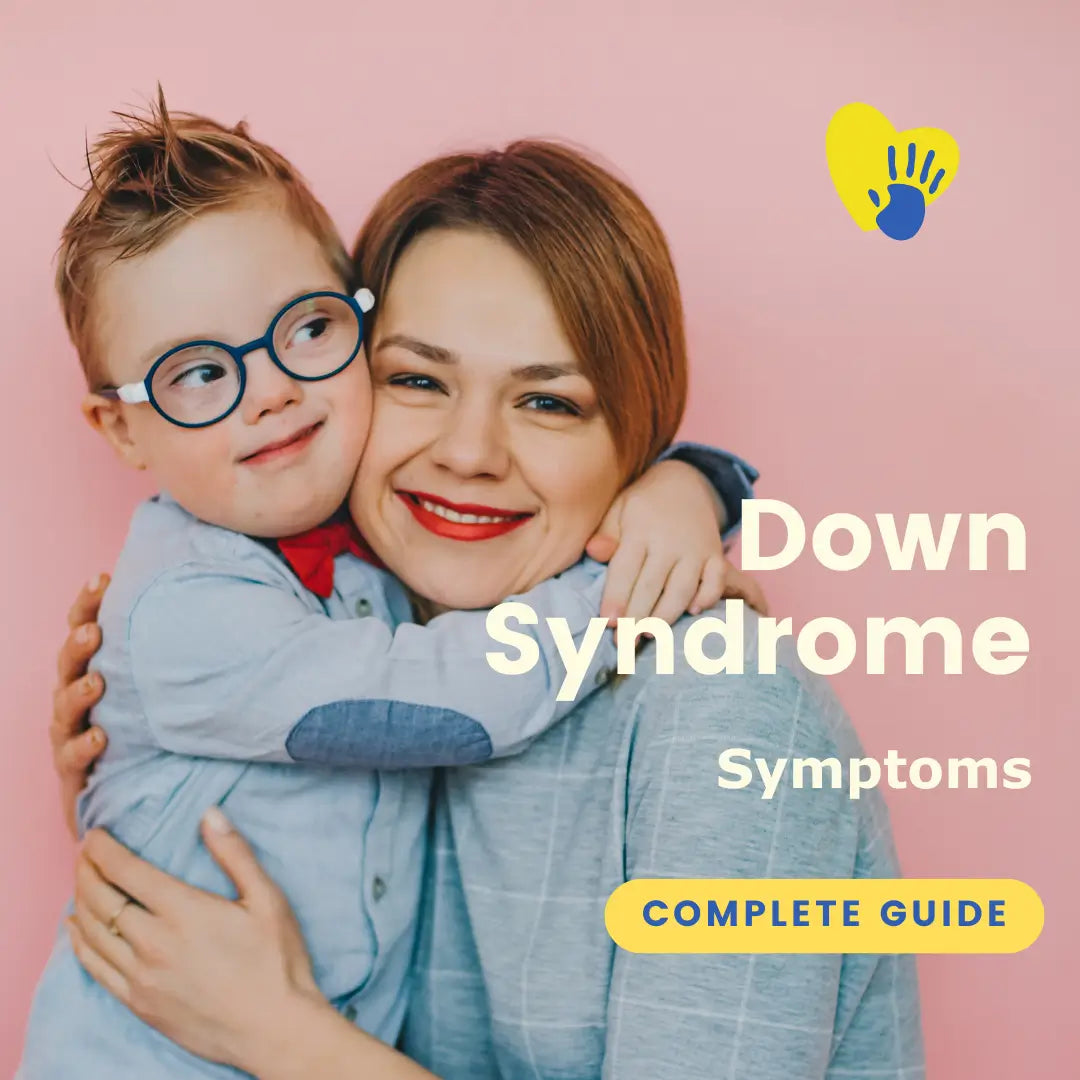Understanding Down Syndrome: Meaning, Symptoms and Treatments
Down syndrome is a genetic disorder that affects approximately 1 in 700 births worldwide. It is caused by an extra copy of chromosome 21, which can result in delays in physical and intellectual development. Despite the challenges it presents, it is important to understand that individuals with this condition are entitled to the same respect and opportunities as anyone else. In this guide, we will provide an overview of Down syndrome, its causes, symptoms, and how to support individuals with this condition.
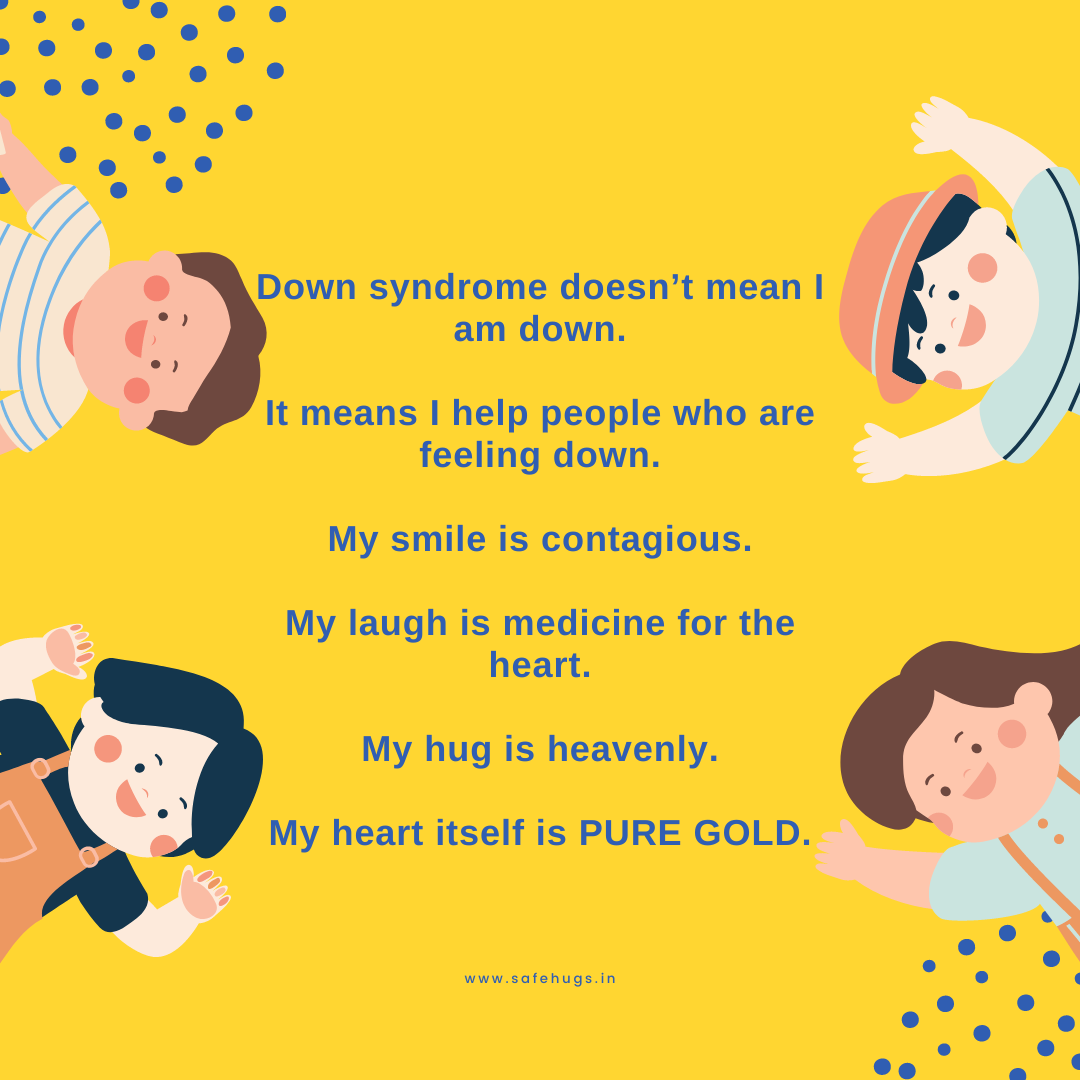
I always say I am Pablo Pineda and that I have Down’s syndrome. There is a big difference between 'having' and 'being.' 'Being' can crush you down and 'having' shows it is only one feature." – Pablo Pineda, the first European with DS to graduate with a university degree
Table of Contents
Down Syndrome Meaning:
Down syndrome, also known as trisomy 21, is a genetic disorder that occurs when a person has a full or partial extra copy of chromosome 21. This additional genetic material affects the development of the body and brain, leading to characteristic physical features and varying degrees of intellectual disability. However, it's crucial to recognize that each individual with Down syndrome is unique, with their own talents, abilities, and personality traits.
“Having Down syndrome means nothing to me, I'm special like everyone else. I do not let people judge me for having Down syndrome. The important thing is how I feel about myself. On the inside, I feel beautiful.” – Edward Barbanell, Actor and Comedian
What is Down Syndrome?
Causes of Down Syndrome:
The exact cause of Down syndrome is not fully understood, but it is believed to occur due to an extra copy of chromosome 21.
This can happen in one of three ways:
-
Trisomy 21: This is the most common form of Down syndrome, accounting for about 95% of all cases. It occurs when there is an extra copy of chromosome 21 in every cell in the body.
-
Mosaic Down syndrome: This is a less common form of the condition, accounting for about 4% of all cases. It occurs when there is an extra copy of chromosome 21 in some, but not all, of the cells in the body.
- Translocation Down syndrome: This is also a less common form of the condition, accounting for about 1% of all cases. It occurs when there is an extra copy of chromosome 21 that is attached to another chromosome.
Down Syndrome Symptoms:
Individuals with Down syndrome may experience a range of physical and intellectual delays. These delays can vary in severity, and some individuals may have more pronounced delays than others. Some common symptoms of Down syndrome include:
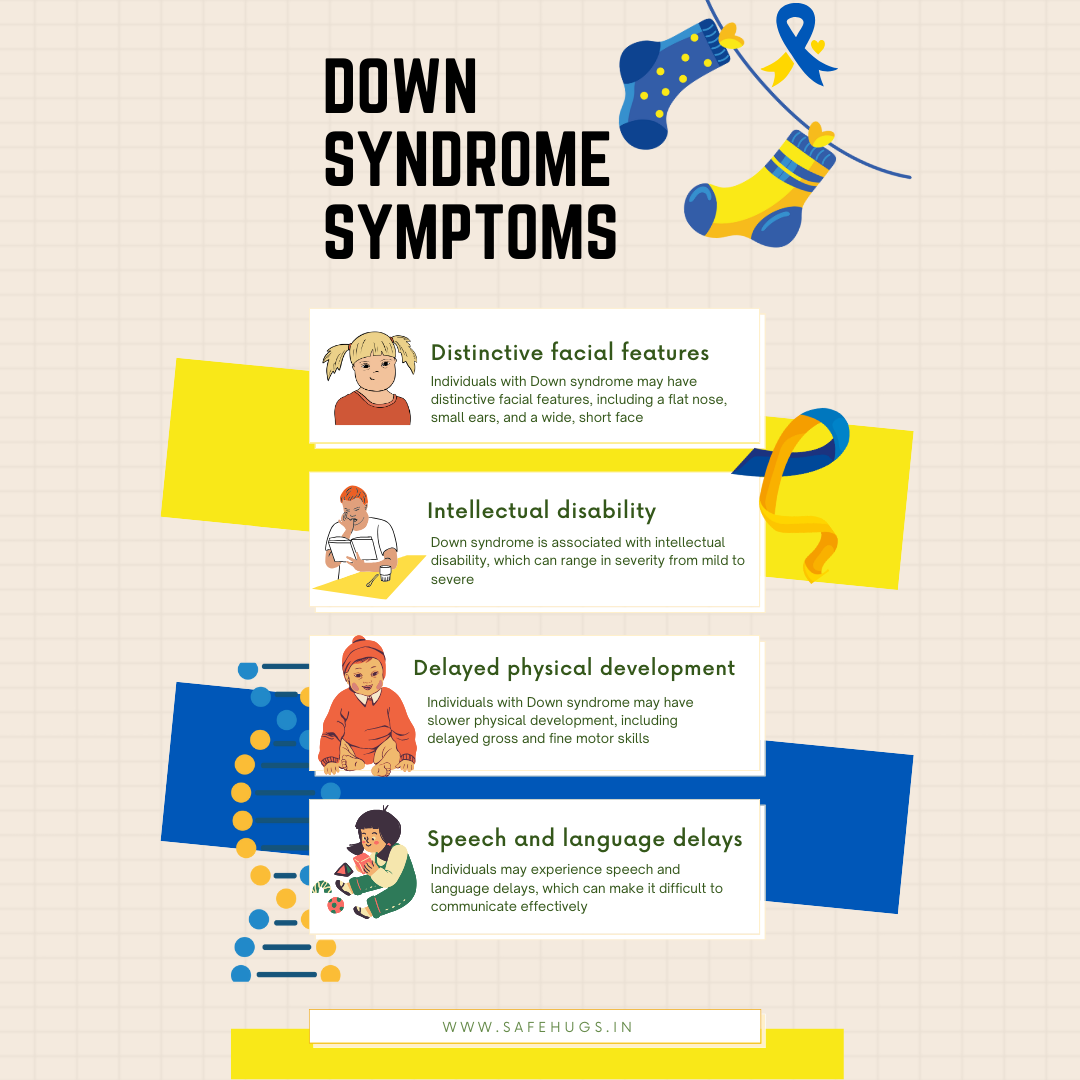
Delayed physical development:
Individuals with Down syndrome may have slower than average physical development, including delayed gross motor skills (such as walking and running) and fine motor skills (such as drawing and writing).
Intellectual disability:
Down syndrome is associated with intellectual disability, which can range in severity from mild to severe.
Distinctive facial features:
Individuals with Down syndrome may have distinctive facial features, including a flat nose, small ears, and a wide, short face.
Speech and language delays:
Individuals with Down syndrome may experience speech and language delays, which can make it difficult to communicate effectively.
Sarah Smith shares her daughter Emily's journey with Down's syndrome and heart problems. Despite initial challenges, Emily has excelled in various activities like horse riding and college. The family supports Emily's independence and future goals, including getting a job and living on her own.
Understanding the Symptoms:
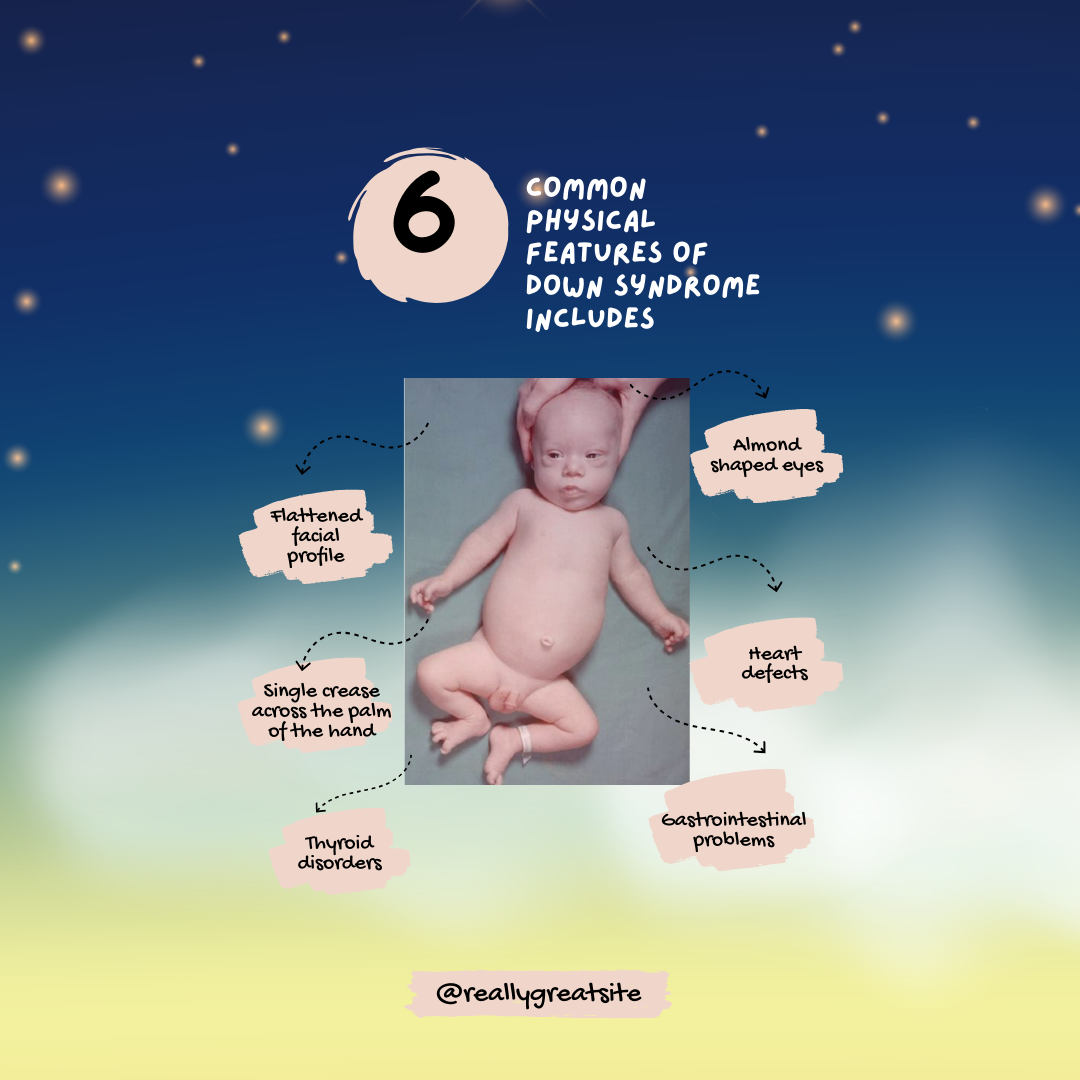
Common physical features of Down syndrome include:
- almond-shaped eyes,
- a flattened facial profile, and
- a single crease across the palm of the hand.
Additionally, individuals with Down syndrome may experience health issues such as,
- heart defects,
- gastrointestinal problems, and
- thyroid disorders.
The probability of occurrence increases from less than 0.1% in 20-year-old mothers to 3% in those aged 45. The extra chromosome is present at conception, where the egg and sperm combine. A small percentage of individuals (1-2%) have an extra chromosome in their embryonic cells, known as Mosaic Down syndrome. While these symptoms may pose challenges, early intervention, medical care, and supportive environments can greatly improve quality of life.
To read more about Down Syndrome Symptoms, visit.
Diagnostic Tests:
Diagnostic tests are usually performed after a positive screening test in order to confirm a Down syndrome diagnosis. Types of diagnostic tests include:
-
Chorionic villus sampling (CVS)—examines material from the placenta.
-
Amniocentesis—examines the amniotic fluid (the fluid from the sac surrounding the baby)
- Percutaneous umbilical blood sampling (PUBS)—examines blood from the umbilical cord
These tests look for changes in the chromosomes that would indicate a Down syndrome diagnosis.
Tips to Support Individuals with Down Syndrome:
While Down syndrome can present unique challenges, there are many ways to support individuals with this condition. Here are some tips:
Treat individuals with Down syndrome with respect and dignity:
It is important to remember that individuals with Down syndrome are entitled to the same respect and dignity as anyone else. Avoid using language or behaviour that is offensive or demeaning.
"Aren't we all human? Don't we all deserve to be respected and treated equally?” – Madeline Stuart, Australian Catwalk Model
Encourage independence:
While individuals with Down syndrome may require some support, it is important to encourage independence whenever possible. Encourage them to make their own decisions and take care of their own needs.
“Having Down syndrome is like being born normal. I am just like you, and you are just like me. We are all born in different ways, that is the way I can describe it. I have a normal life.” – Chris Burke, American Actor and Folk Singer
Provide early intervention and therapy services:
Early intervention and therapy services can help individuals with Down syndrome develop important skills, such as language and gross motor skills.
Celebrating Achievements:
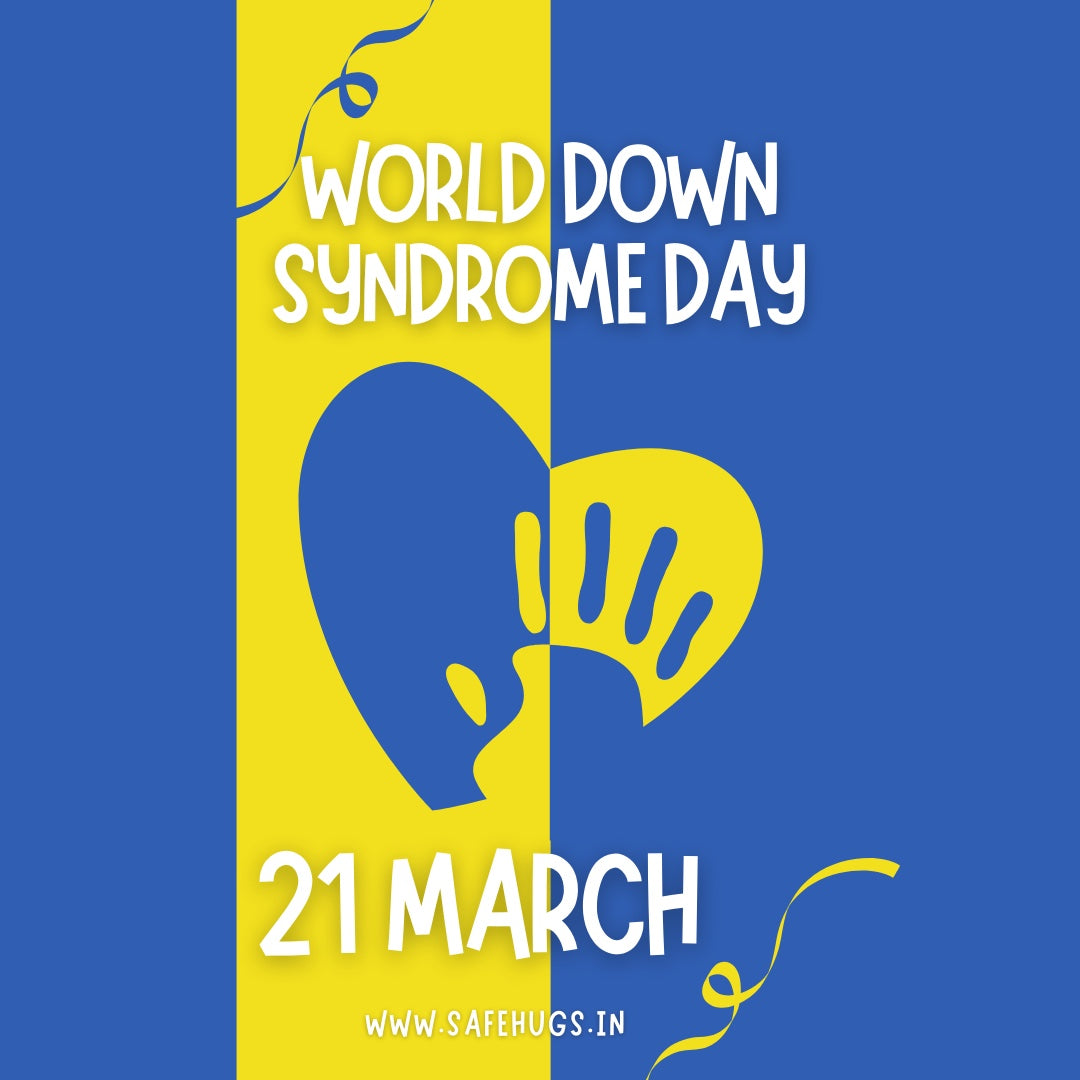
The month of October is observed as the Down Syndrome Awareness Month. And 21st March is observed as 'World Down Syndrome Day'. Despite societal misconceptions, individuals with Down syndrome lead fulfilling lives and achieve remarkable milestones. From academic accomplishments and artistic talents to athletic achievements and career successes, the achievements of individuals with Down syndrome are a testament to their resilience and determination. Every accomplishment, no matter how small, deserves recognition and celebration.
Promoting Inclusivity and Acceptance:
In a world that often emphasizes conformity, it's essential to champion diversity and promote inclusivity. People with Down syndrome contribute valuable perspectives, talents, and experiences to our communities. Individuals with Down syndrome are entitled to the same opportunities and experiences as anyone else. Develop a sense of belonging and inclusion by providing opportunities for socialization and community engagement.
By fostering environments of acceptance, understanding, and support, we can create a more inclusive society where individuals with Down syndrome are valued and respected for who they are.
Embracing the Journey:
The journey of raising a child with Down syndrome may present unique challenges, but it is also filled with joy, love, and profound moments of connection. Families, caregivers, educators, and advocates play vital roles in supporting individuals with Down syndrome as they navigate life's adventures. Together, we can ensure that every individual with Down syndrome has the opportunity to thrive and reach their full potential.
"Children with Down syndrome have an extraordinary sweetness of temperament, as if in inheriting an extra chromosome they had acquired a concomitant loss of cruelty and malice (if there is any doubt that genotypes can influence temperament or personality, then a single encounter with a Down child can lay that idea to rest)."
Siddhartha Mukherjee, The Gene: An Intimate History
Treatments:
Down syndrome is a lifelong condition. Various Measures taken early in life will often help babies and children with Down syndrome to improve their physical and intellectual abilities. Most of these services focus on helping children with Down syndrome develop to their full potential. These services include speech, occupational, and physical therapy, and they are typically offered through early intervention programs in each state. Children with Down syndrome may also need extra help or attention in school, although many children are included in regular classes.
Here are a list of various organizations that works to support various individuals with Down Syndromes:
DSRF initiates research studies to better understand the learning styles of those with Down syndrome.
GiGi’s Playhouse provides free educational, therapeutic-based, and career development programs for individuals with Down syndrome, their families, and the community, through a replicable playhouse model.
This foundation is dedicated to significantly improving the lives of people with Down syndrome through research, medical care, education and advocacy.
The National Association for Down Syndrome supports all persons with Down syndrome in achieving their full potential. They seek to help families, educate the public, address social issues and challenges, and facilitate active participation.
NDSS seeks to increase awareness and acceptance of those with Down syndrome.
In conclusion, Down syndrome is a genetic disorder that can affect individuals in various ways. While it can present unique challenges, it is important to understand that individuals with this condition are entitled to the same respect and opportunities as anyone else. By providing early intervention and therapy services, encouraging independence, and fostering a sense of belonging and inclusion, we can support individuals with Down syndrome and help them reach their full potential. Remember, every individual with Down syndrome is unique and deserving of respect and dignity.
Note: This blog post aims to promote awareness, understanding, and acceptance of Down syndrome. It is essential to consult medical professionals and trusted resources for accurate information and support.
FAQ's:
Q1. Down Syndrome Symptoms?
Down syndrome symptoms include intellectual disabilities, distinctive facial features such as a flat nasal bridge and almond-shaped eyes, developmental delays, and often congenital heart defects.
Q2. Signs of Down Syndrome during pregnancy.
Signs of Down syndrome during pregnancy may include increased nuchal translucency (detected through ultrasound), abnormal prenatal screening test results (like the quad screen or non-invasive prenatal testing), and certain fetal abnormalities observed through ultrasound, such as heart defects or other structural anomalies.
Q3. Down Syndrome Treatments.
Down syndrome treatment includes early intervention with therapies like speech and physical therapy, along with medical management for associated conditions.
Q4. What are people with Down Syndrome like?
People with Down syndrome are characterized by their unique personalities and abilities, often exhibiting warmth, kindness, and empathy. Despite facing challenges, they contribute to society and form meaningful connections like anyone else.
Q5. What is the mental age of a person with Down Syndrome?
The mental age of a person with Down Syndrome can vary widely, but it's important to recognize and support their individual strengths and challenges rather than relying solely on age-based comparisons.
Q6. What is Down Syndrome caused by?
Down Syndrome is caused by the presence of an extra chromosome 21, known as trisomy 21, resulting in characteristic physical and developmental features.
Q7. What is the life expectancy of Down Syndrome?
Life expectancy for individuals with Down Syndrome has significantly increased over the years, with many living into their 60s and beyond, particularly with access to quality healthcare and support services.
Q8. Down Syndrome Meaning.
Down syndrome is a genetic condition caused by the presence of an extra chromosome 21, leading to developmental delays, distinctive physical features, and often intellectual disabilities.































